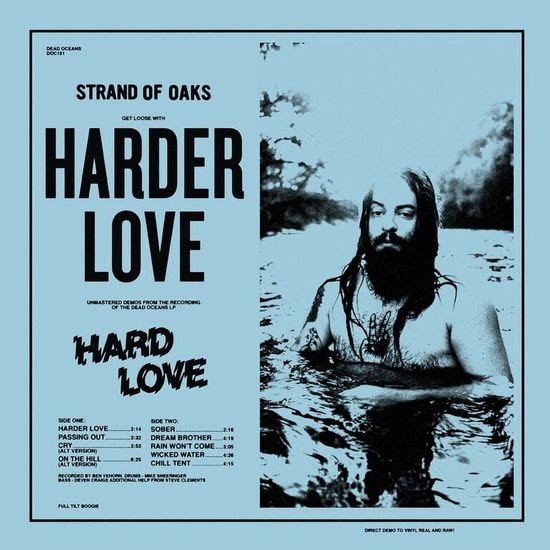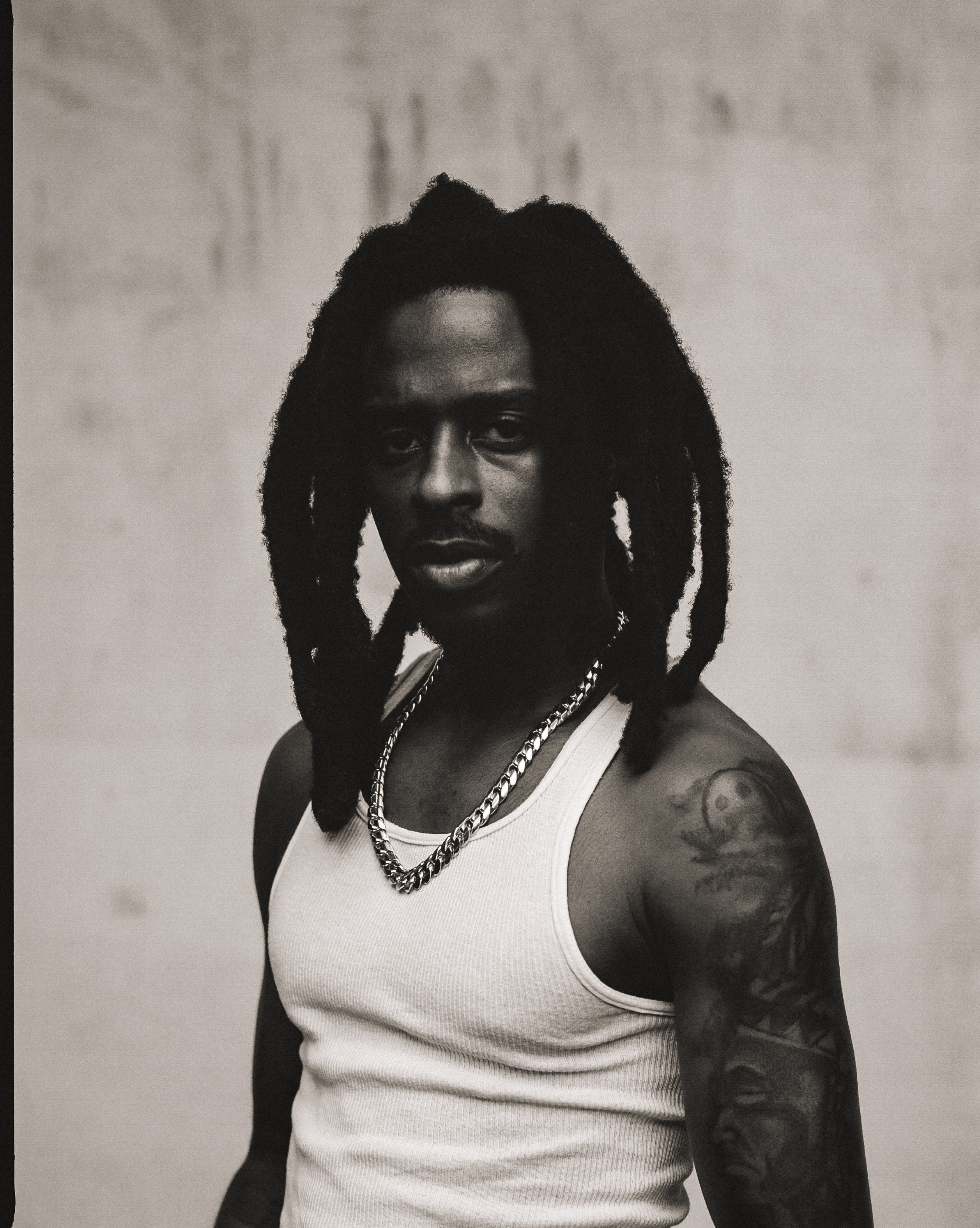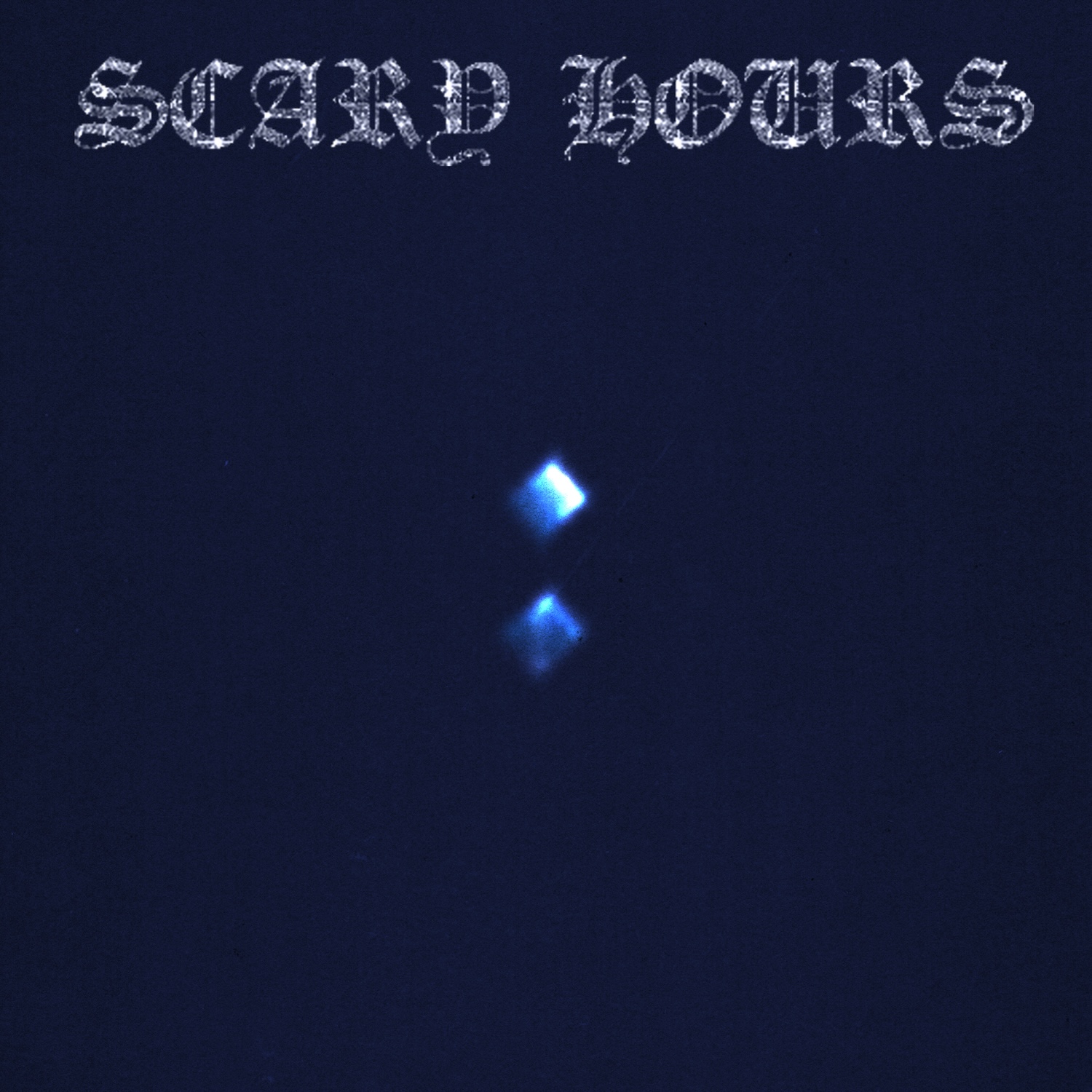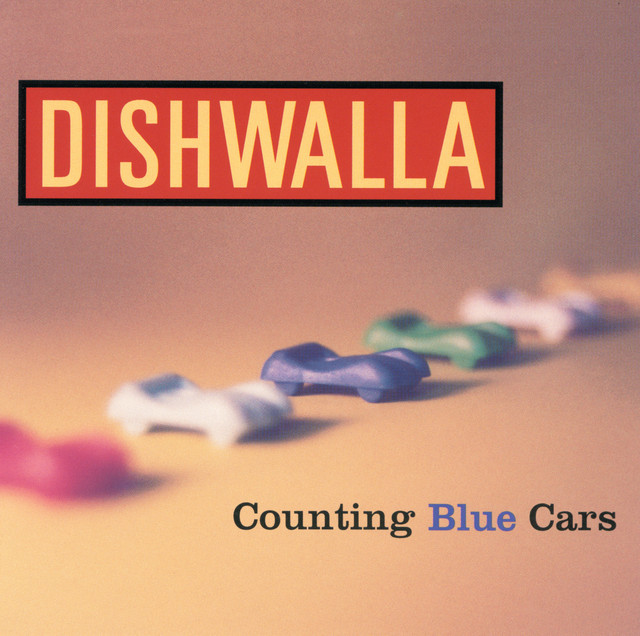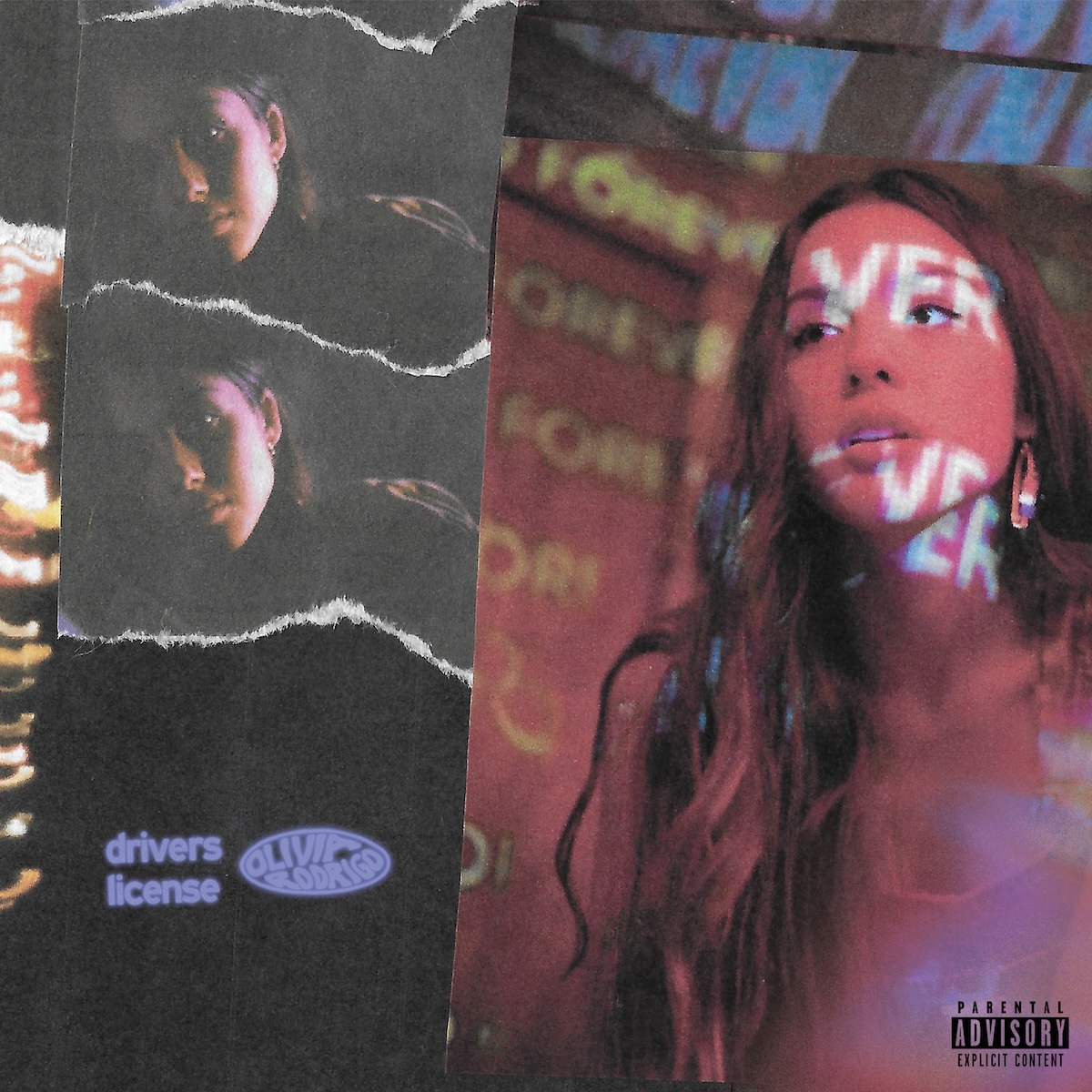Almost exactly 11 months ago today, Tim Showalter released his fifth album under his moniker Strand Of Oaks, Hard Love. After the breakthrough and acclaim that came with 2014's HEAL, there was some anticipation: That he'd finally settled into his groove as a songwriter and performer, that there could be another record's worth of deeply emotive rock songs on the way, that he could move up to the next level. And then something just ... didn't quite click.
Of course, this is partially an issue of perception. If you attended a Strand Of Oaks gig last year, chances are you found bigger and more fervent crowds than at even the tail end of HEAL's tour cycle, and chances are you saw those fans invigorated by new Hard Love tracks as much as they were by their favorites from HEAL. Yet there's no denying that Hard Love arrived quietly compared to the step up in Strand Of Oaks' career many were expecting after the slow-burn goodwill behind HEAL landed it on many of 2014's end-of-year retrospectives. By the end of 2017, Hard Love was a rare entry on those lists. Who knows why Hard Love didn't connect the same way HEAL did. Maybe the narrative and the raw nerves of HEAL simply made it more impactful for people than Hard Love, an album that sort of functions as vignettes, glimpses into a raucous and tumultuous two years of Showalter's life, coming together into a loose narrative but perhaps only if you know the story behind each one. Maybe people simply missed it, a February release buried as the year went on. Maybe people simply didn't like it as much.
Whatever the case, it seems Showalter felt it in the air, too. At the tail end of last year, he announced Harder Love. It's hard to say exactly what the release is. It is not a straight-up collection of B-sides. It's not a straight-up collection of demos for the songs that eventually made it onto Hard Love, though all the recordings are unmastered. It's not a completely different sister album, nor is it a complete re-imagining of Hard Love after the fact in the vein of the Shins' The Worm's Heart, an inverted take on their 2017 release Heartworms that is coincidentally also out today. It's something like an alternate universe version of Hard Love, but even then it's only a partial glimpse of what could've been.
There's some backstory here. As with many bands these days, the several years between albums meant that Showalter wrote a lot of material. There were a couple other albums that could have been Hard Love. But there was a specific turning point in Hard Love's genesis, and that was the first time he tried to record it, in Akron in late 2015. That was supposed to be the album. Instead, he shelved it, and returned to the studio in Spring 2016, explaining that it wasn't that there was anything wrong with the initial album, it just wasn't "as right as it could be." That second version is the one that eventually saw release early last year. Harder Love is made up of material from those original Akron sessions.
From December 2014 through December 2016, I crossed paths with Showalter in several places, at several different points in the gestation of Hard Love. In the middle, in October of 2015, we were in a dingy hotel room in Vegas when he excitedly played me the demos he was about to go record in Akron. I had a totally different expectation of what the record would be based on hearing those: I heard '80s-indebted anthems, I heard big '90s psychedelia and Brit-rock. That version of "Hard Love" reminded me of something Springsteen could've cut around the time of Born In The U.S.A.; the early version of "Everything" was like Echo & The Bunnymen's "Bring On The Dancing Horses" as played by Ride. Some of that remained on the final Hard Love, some of it had been lost, and perhaps some of it was always my misperceptions of the demos.
Either way, Harder Love is, for Strand Of Oaks fans, the missing part of the story, the material that wound up becoming the transition point from those 2015 demos to Hard Love in 2017.
It isn't a completely standalone thing, nor an image of exactly what the old version of Hard Love would've been. The tracklist is a mixture of earlier versions of Hard Love songs, songs that were cannibalized for new tracks during the 2016 sessions, and left-field experiments that likely would've never made any iteration of the album.
A lot of it is great. As far as the older versions of songs go, a more polished rendition of "Harder Love," a far sprightlier track than the cinematic indie of Hard Love's title track, may have been the ideal middle ground; regardless, "Harder Love" is one of the lightest and catchiest songs in the Oaks catalog. Similarly, the full arrangement of "Cry" sounds like a prime '70s singer-songwriter ballad and far outstrips the spare piano reading that wound up on the finished album.
Elsewhere, Showalter's impulse to revisit and revise proved correct. The old version of "On The Hill" had that sun-rupturing vision quest quality already, but it's a little too much of a dreamscape trip, without the dramatic payoff of the Hard Love update. (The digital edition of Harder Love also comes with an extended "On The Hill" that keeps a fluttering synth pattern intact, an early touch that maybe should've remained throughout the song's evolution.) "Dream Brother" is a subtly addicting tribute to early Smashing Pumpkins that eventually gave way to Hard Love's shamanic closer "Taking Acid And Talking To My Brother," likely the superior of the two though it's tempting to imagine a version of Hard Love where they could've coexisted. There are tracks like the nocturnal, worn synth ballad "Sober" and the surprisingly dark and ever-changing "Rain Won't Come" that are intriguing -- the latter in particular deserves a chance to develop onstage during the next Oaks tour -- but do sound like songs that are still figuring out what they want to be.
Otherwise, there's the stuff that was deemed "too weird" for the initial release. Namely, there's the warbling dub of "Wicked Water" -- a piece of which was repurposed for the Hard Love version of "On The Hill" -- and the surprising "Chill Tent." Don't take the song at face value by its name. It's not just a loopy festival jam. It finds Showalter experimenting with a gently pulsing synth straight out of electronic music, but he couples it with Vangelis-style synth washes while he sings a beautiful, restrained melody, continuously asking "Pour/ All your love/ Over me." It's both the most batshit moment, the one least likely to fit alongside any existing Oaks music, and the most revelatory. Though you might not guess it from his output, Showalter is a nerd for electronic music and synths, and I'd be curious to hear what further experiments in this direction, away from the surging alt-rock of Hard Love, could produce.
The obvious standout on Harder Love, and the obvious glaring omission from Hard Love's final tracklist, is "Passing Out." An autumnal, roadworn type song, "Passing Out" may be one of the songs that Showalter shied away from out of a fear of hewing too close to HEAL on its followup. But the simple fact is that it's one of the man's most immediately likable and infectious songs, a bleary blend of classic rock and '80s indie vibes. It would've been one of the best songs on Hard Love, and it's easy to imagine it becoming a staple in his setlists.
There's a slippery slope with music criticism these days, a tendency for people to review an album based on what they wanted it to be rather than whether the artist succeeded in what they set out to do. That isn't necessarily what afflicted Hard Love, where you can point to a few plain missteps, but it is something of a disclaimer for what I'm about to say. If "Passing Out" and a few of the other gems on Harder Love proved anything to me, it was that the best version of this album probably existed somewhere between Harder Love and Hard Love. Without veering into fan fiction, and based on all the things I heard over the years as the album developed, I can imagine an album as muscular and ambitious as Hard Love, but with some of the ragged and further-out moments of Harder Love preserved. A psychedelic odyssey punctuated with comedown, back-to-earth moments of human clarity. An album that went for it with a touch less second-guessing.
On my phone, I made a playlist of what that album might've looked like. It's called Hardest Love, and includes a combo of Harder Love, Hard Love, and a song called "Back Home" that'll probably never be released -- but just imagine a midtempo, aqueous synth-rock track slotted between "On The Hill" and "Cry (Alt Version)":
Hardest Love:
01. "Harder Love"
02. "Radio Kids"
03. "Everything"
04. "Dream Brother"
05. "On The Hill" (Hard Love version)
06. "Cry (Alt Version)"
07. "Passing Out"
08. "Rain Won't Come"
09. "Taking Acid And Talking To My Brother"
It still isn't perfect: You have to use your imagination a bit, to think of what finished versions would sound like and how a unified aesthetic could've been developed. But that album will never exist. Instead, we have the Hard Love that did come out, and the rewarding addendum of Harder Love. Sometimes that's just the way it goes: An album almost makes it there, and something gets lost along the way. The upside is that Showalter chose to share all of that with us, and there are still plenty of great songs between the two halves that now exist of the Hard Love story.
Harder Love is streaming now, so check it out and decide for yourself:
Harder Love is out now on Dead Oceans.
